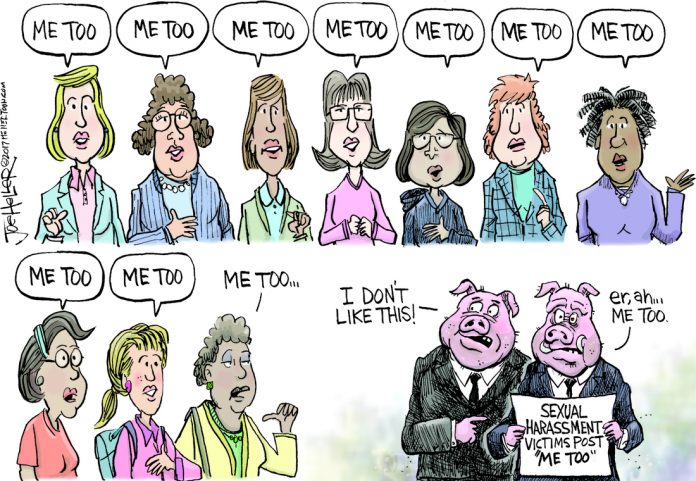The recent blockbuster allegations of sexual misconduct by mega Hollywood producer Harvey Weinstein has spawned a new social media movement as people use the hashtag “MeToo” to highlight their own experiences with sexual harassment and exploitation.
My own Facebook feed is dotted with “MeToo” posts and according to national news reports the movement has topped 1.7 million tweets in 85 countries.
The sheer volume is a sobering one. While men are not immune to sexual misconduct and have also used the hashtag, the movement is largely a female one.
In 1991, Anita Hill brought the topic of sexual harassment to the national consciousness when she testified before Congress about the alleged unsolicited behavior she witnessed from Clarence Thomas, then a nominee for the United States Supreme Court.
I was 14 that year and I remember watching those proceedings on television with my mother in absolute wonder.
On one hand I was growing up in a time marked by extraordinary developments: the fall of communism and the Berlin Wall, the fight against apartheid in South Africa leading to the release of Nelson Mandela from prison, and farm labor movement victories brought about by the tireless work of Cesar Chavez and Dolores Huerta.
To me, life seemed to be one of progress and global awakening. In pop culture, rappers’ lyrics included mentions of safe sex, everyone seemed to want to save the whales or the rainforests and bumper stickers proclaimed loudly to “Free Mumia” and “Keep Tahoe Blue.”
Now, there was a professional woman on TV talking about cans of coke and pubic hairs. It didn’t make sense.
It was only until I got older that I understood what Ms. Hill was trying to teach.
When I would stand at a bus stop and get propositioned. When I would walk down a street in my own hometown and get asked my rates. When it seemed like every time I went to a concert or club I was standing in the way of an exit or bathroom because why else would stranger’s hands reach out to touch me?
This is why I feel sad but heartened over the #MeToo movement. Young women are more open-minded to the regressive reality that persists to this day. Men are coming out with their own stories. People are more willing to say this behavior is not okay, it’s not funny and perpetrators in authority positions should be punished.
I also hope we take this movement further and look at how women are still receiving unequal treatment in this country. According to the Pew Research group, women earn 83 percent of what men do for the same job. Women still do the bulk of housework —an hour more on average a day than men do, even when they make more money for the household.
Acknowledgment of the problem and acceptance and empathy for the people who are sharing their stories has to be followed by real and thoughtful change to our unequal system.










